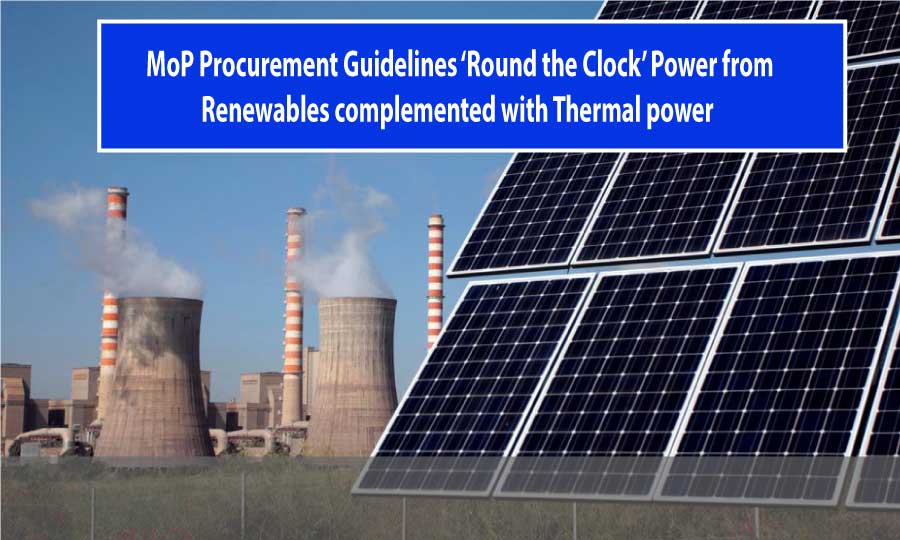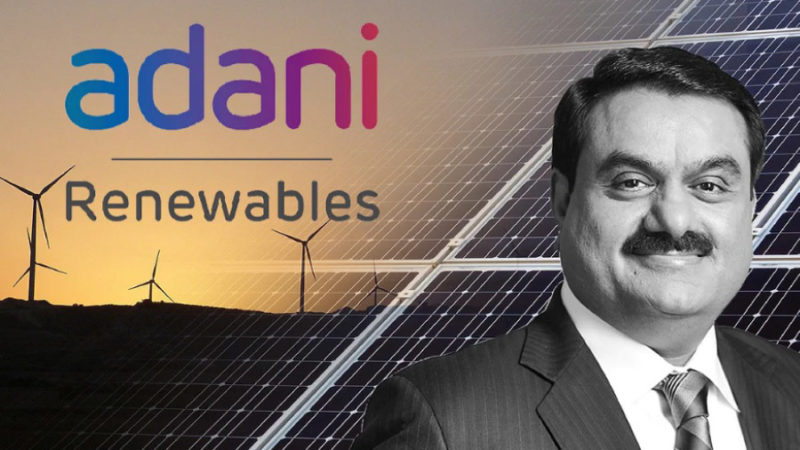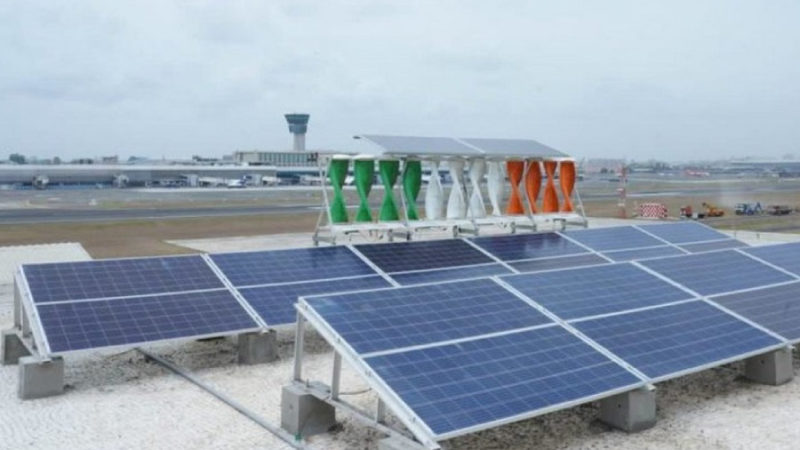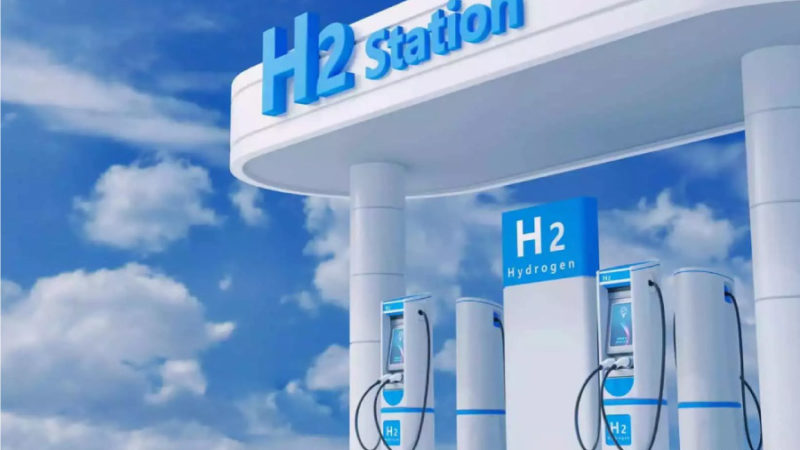Guidelines for ‘Round-the-Clock’ power procurement of renewables mixed with thermal power

Guidelines for procurement of round-the-clock (RTC) power from grid-connected renewable power projects supplemented with thermal power has been released by the Ministry for Power (MoP).
The ministry of power has released the guidelines for round-the-clock (RTC) procurement of renewable power complemented with thermal power.
Key Features:
As per the notification, the generator must supply renewable energy complemented with thermal in a round-the-clock manner maintaining the availability of 85 percent during peak hours. The generator can combine storage to maintain a minimum annual availability of 85 percent.
Of the annual energy offered, renewable energy must account for a minimum of 51 percent, while the remaining can be complemented with thermal sources. Also, the bidders should quote a single composite tariff for renewable energy, supplemented with thermal energy.
Further, as per the notification, the minimum amount of power to be offered is fixed at 250 MW. For this, the bidder can tie-up with more than one thermal project with capacities of lesser than 250 MW.
According to the notification, the sum of the generation schedule of renewable energy power and thermal power cannot exceed the contracted capacity during any time frame. Though, the total capacity of thermal power projects that supply power to supplement renewable energy may exceed the contracted capacity.
In addition, the generator will also be liable for a penalty towards any shortfall in offering renewable energy power less than 51% of the total electricity delivered in a contract year. For this, the penalty for each unit of the shortfall – and would be calculated at 25% of the maximum indexed composite tariff payable during the year.
Total generation from renewable energy sources needs to follow “must-run”. While the generation coming from thermal sources will have to follow the merit order of dispatch as per its indexed variable charges.
Bidding Process and PPA
Further, the criteria of ensuring at least two qualified bidders has been notified in the guidelines – so as to have healthy competition. On the other hand, the procurer will need the consent of the appropriate commission, in case the qualified bidders are less than two even after three attempts to bidding, and he still wishes to continue with the bidding process.
The duration of the power purchase agreement (PPA) should be a minimum of 25 years from the scheduled commencement -of-supply date (SCSD). While there is a provision that the PPA can also be fixed for a longer period. The important point is that in any case, the PPA document should mention the duration of the PPA.
Mentioning about the financial closure in terms of the PPA, the guidelines offer timelines in three categories for the RTC power generator to attain financial closure from the date of execution of the PPA:
- 12 months for projects up to 500 MW
- 18 months for projects between 500 MW and 1,000 MW
- 24 months for a project size of more than 1,000 MW
Similarly, the projects should be commissioned and begin the supply of power, from the date of execution of the PPA within a period of:
- 18 months for projects up to 500 MW
- 24 months for projects between 500 MW and 1,000 MW
- 30 months for a project size of more than 1,000 MW
As a part of the qualification requirement, the procurer should specify the financial criteria in the form of the net worth. Given that the generator is responsible for supplying both renewables and thermal power, the net-worth requirement should be at least 30% of the estimated renewable energy project cost.
RPO Eligibility and ISTS Charges
The notice further mentions that the component of renewable energy under this plan is eligible for compliance with the Renewable Purchase Obligation (RPO).
When renewable energy has both solar and non-solar components, RPO distribution will be based on the principles adopted in the case of hybrid schemes involving solar and non-solar power sources.
The interstate transmission system (ISTS) charges will be applied as per the existing rules on transmission losses, including exemptions for renewable power.








